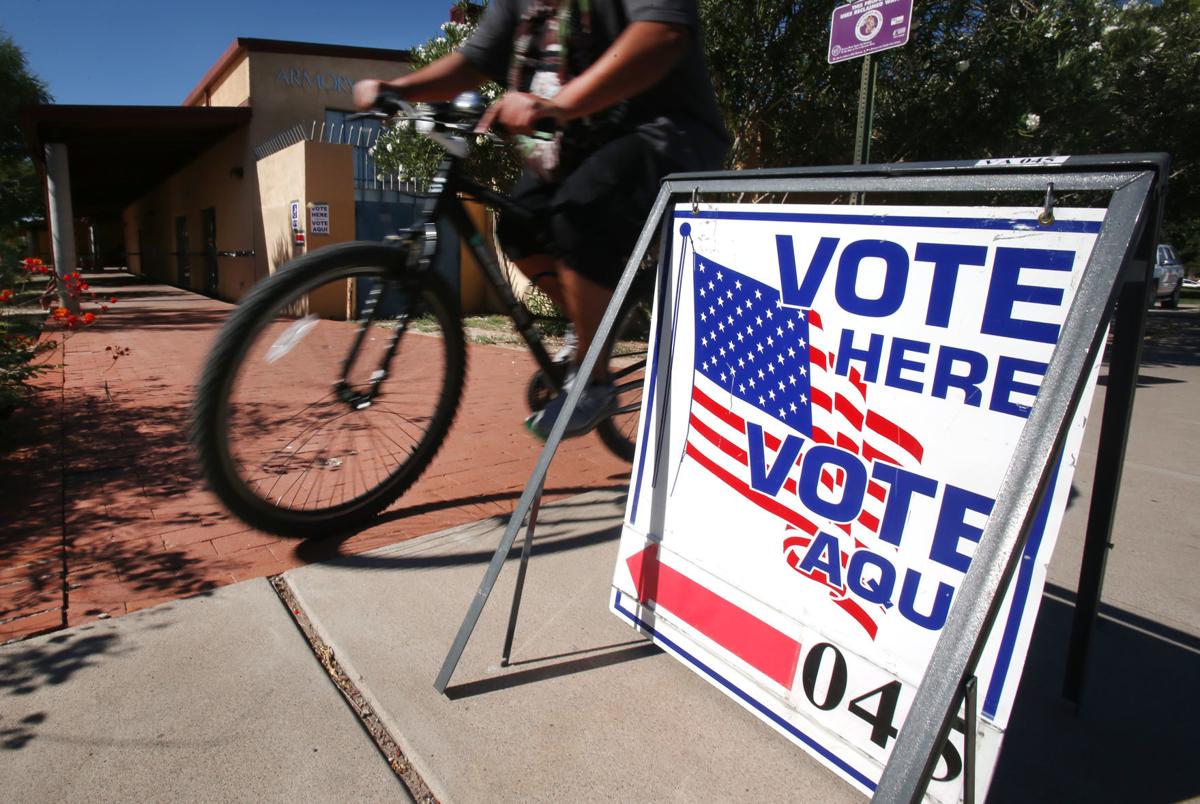PHOENIX — A measure put on the November ballot by Republican lawmakers could determine how much Arizonans actually know about who is trying to influence political campaigns.
Anyone reviewing all the statements in support of Proposition 306 in the brochure being sent to voters would think the measure is aimed at keeping publicly funded candidates from buying services from political parties.
And that’s true.
But the proposal also contains what Rep. Ken Clark, D-Phoenix, calls a “Trojan horse,” one that supporters say very little about.
If approved, it would subject the rules enacted by the bipartisan Citizens Clean Elections Commission to review — and veto — by the Governor’s Regulatory Review Council, which is made up of people named by the governor.
The reason all that is important is that the commission has enacted — and enforced — rules that require certain groups seeking to influence political campaigns to disclose the sources of their funds, even as Arizona lawmakers have approved and Gov. Doug Ducey has signed legislation to shield the identity of donors.
Ducey has depended on private donations for his campaigns, with much of his support coming from “dark money” groups that refuse to divulge their donors. And he is on record as opposing efforts to ban anonymous funding of political campaigns.
This fight isn’t just an academic exercise.
Last year the review council ordered the secretary of state to “depublish” a commission rule that dealt with the reporting of the sources of money spent by groups seeking to influence the outcome of elections. The commission responded by re-enacting the same rules, simply ignoring the review council.
So the outcome of Prop. 306 could determine whether the public gets a look at who is seeking to influence future elections.
At the heart of the fight is the decision by voters in 1998 to create a voluntary system of public financing for candidates for statewide and legislative office. Candidates who get sufficient $5 qualifying donations and agree not to take outside cash are entitled to set sums of money.
It is funded through a surcharge on civil, criminal and traffic fines.
The system has been fought from the beginning by the business community, particularly the Arizona Chamber of Commerce and Industry, which has been the source of campaign dollars, particularly for Republicans. But while the U.S. Supreme Court voided one provision, the basic structure of the clean-elections sytem has been upheld.
What has made the role of the clean-elections commission more significant is its conclusion that the voter-approved law gives it power not only over publicly funded candidates but also spending by outside groups on behalf of all candidates. That flies directly in the face of the Republican-controlled Legislature that has adopted various measures designed to shield groups set up as “social welfare” organizations from having to divulge the original sources of money.
Rep. Doug Coleman, R-Apache Junction, who is listed as the author of the measure, referred questions about the change in rule oversight to Scot Mussi.
He’s the chairman of the Stop Taxpayer Money for Political Parties, the group set up to persuade voters to approve Prop. 306. That same group paid for 33 individuals to put statements into the ballot pamphlet being mailed to the homes of all registered voters detailing why publicly funded candidates should not be able to buy services from political parties.
He said there is no reason to exempt the commission from the same oversight as other state agencies, even if it was created by voters.
“The CCEC has repeatedly demonstrated a lack of transparency and accountability while passing rules that have received limited public input,’’ he said.
Mussi is the chairman of the Arizona Free Enterprise Club that gave the money to the campaign committee for all those statements.
The Free Enterprise Club has been a major source of funding to support candidates it likes — and oppose those it does not like — all without disclosing the original source of the money.
In the 2014 election, the group reported spending more than $1.7 million to influence election outcomes. That included $150,000 spent in the Republican gubernatorial primary to defeat former Mesa Mayor Scott Smith, clearing the way for Ducey’s nomination.
That same year, the group also spent more than $437,000 in hopes of getting Justin Pierce nominated for secretary of state for the GOP while spending $198,185 against Wil Cardon and $97,505 against Michele Reagan.
During the campaign, Pierce was the only one who said he’s not convinced that Arizona law should bar anonymous spending on political campaigns. He said there are legitimate reasons to allow people to get involved in politics — and write out checks — without their names being made public. Reagan won the nomination.
But where Mussi and the club got the money remains hidden.
Mussi’s was also was one of the plaintiffs who successfully sued earlier this year to block a public vote on a constitutional measure which would have required disclosure of all sources of funding of independent expenditures on political campaigns.





